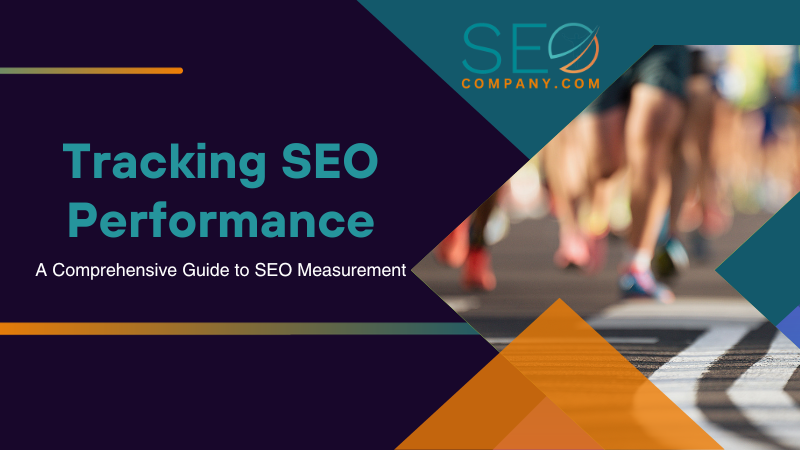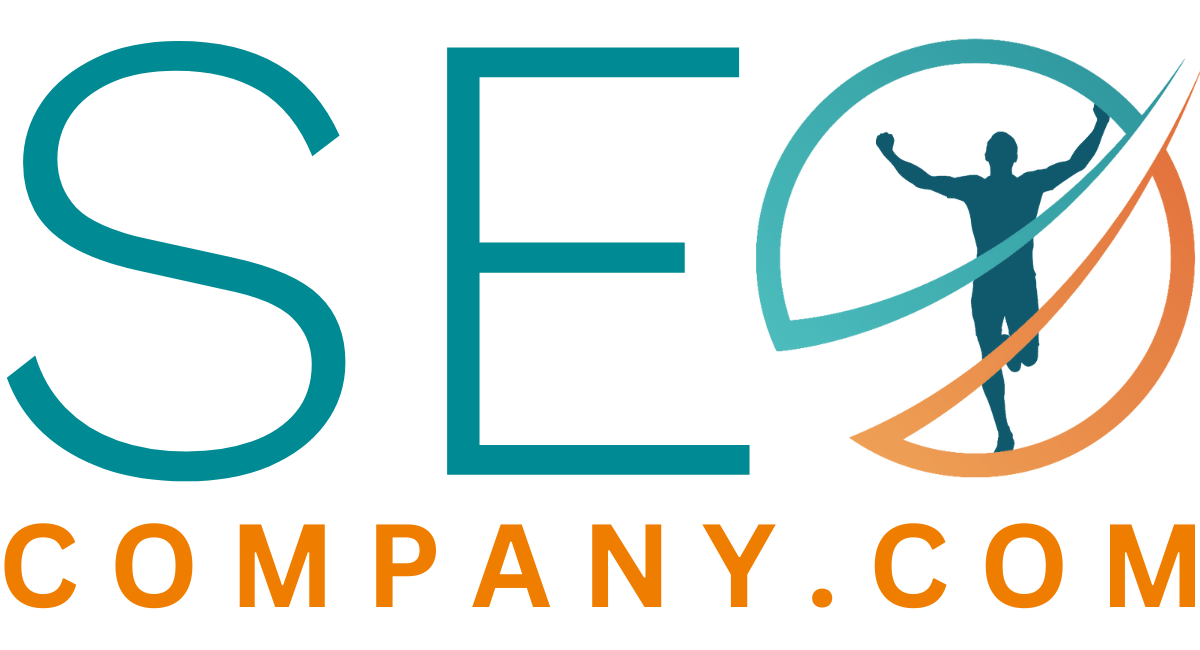
The digital landscape is constantly evolving, and staying ahead of the competition requires a deep understanding of how to measure and improve your website’s SEO performance. But how do you know if your efforts are paying off? In this blog post, we’ll dive into the world of SEO measurement, exploring the essential metrics, tools, and techniques you need to accurately assess your progress and make data-driven decisions for ongoing success.
Key Takeaways
- Analyze essential metrics such as organic traffic, keyword rankings, CTR and bounce rate to measure the success of an SEO strategy.
- Ensure technical SEO health by reviewing robots.txt file, sitemap.xml file and meta tags for crawlability & indexability. Monitor page speed & Core Web Vitals. Track domain authority & new referring domains for link building efforts.
- Use Google Analytics/Search Console and third-party tools like SEMrush/Ahrefs/Moz Pro to effectively measure conversions& ROI, content optimization & user engagement metrics for informed decision making
Essential Metrics for SEO Measurement

In the intricate sphere of SEO, a profound grasp of key metrics is required for effective performance evaluation. These metrics include:
- Organic traffic
- Keyword rankings
- Click-through rate (CTR)
- Bounce rate
Analyzing these fundamental data points enables you to gauge your site’s progress, pinpoint improvement areas, and make well-informed decisions to fine-tune your SEO strategy.
Organic Traffic
Organic traffic refers to the number of visitors arriving from organic search results. Measuring organic traffic is vital for gauging the effectiveness of your SEO efforts, as it directly reflects the number of users who find your site through search engines.
Google Analytics and Google Search Console emerge as indispensable tools for tracking organic traffic. These platforms provide detailed insights into your site’s organic search traffic, allowing you to monitor trends and make adjustments as needed to boost your search visibility.
Keyword Rankings
Keyword rankings are another crucial metric for evaluating the success of your SEO strategy. Monitoring your website’s position in search engine results pages (SERPs) for targeted keywords allows you to assess whether your efforts are yielding results. A sudden drop in keyword rankings could indicate a problem, while an increase could suggest that your SEO strategy is effective.
When conducting keyword research, giving equal importance to both branded and non-branded search terms is essential. Branded keywords help maintain a positive online presence and capture customers who are likely to make a purchase, while non-branded terms influence customers during the decision-making process of their customer journey. To monitor keyword rankings, third-party tools like Ahrefs’ Rank Tracker and SEMrush’s Organic Search Positions report can provide valuable insights.
Close monitoring your keyword rankings provides insight into your current organic market share and total potential. Moreover, it offers an initial indication of the efficacy of your SEO strategy and allows you to make necessary adjustments to enhance your search visibility.
Click-Through Rate (CTR)
Click-Through Rate (CTR) is another essential metric for measuring SEO success. CTR stands for Click-Through Rate. It tells us the percentage of people who viewed one of your pages in search engine results and visited your site afterwards. Analyzing CTR helps you assess the efficiency of your title tags and meta descriptions, which play a crucial role in enticing users to click on your website.
A strong correlation exists between rankings and CTR, as pages ranking higher in search results typically receive a higher percentage of clicks. Monitoring and optimizing your CTR can enhance your website’s visibility in search results, thereby attracting more organic traffic.
Bounce Rate
Bounce rate is another key metric for evaluating your SEO performance. It refers to the percentage of users who leave your website after viewing only one page. Tracking bounce rate helps you identify potential issues with your content or user experience and understand your ability to drive users further into the conversion funnel.
A high bounce rate might suggest that visitors aren’t finding the information they desire or need, while a low bounce rate signifies that your pages are successfully delivering what visitors seek. Addressing bounce rate issues and monitoring them can lead to enhanced user engagement, thereby improving your overall SEO performance.
Technical SEO Health

In addition to measuring essential metrics, it’s crucial to ensure your website is optimized for search engines at a technical level. This includes focusing on crawlability, indexability, and page speed.
Addressing technical SEO aspects can help establish a solid foundation for your website, simplifying the process for search engines to access, comprehend, and rank your content.
Crawlability & Indexability
Crawlability and indexability are vital components of technical SEO health. Ensuring that search engines can access and index your website’s content is fundamental to your site’s visibility in search results. To verify crawlability and indexability, you should check your robots.txt file, sitemap.xml file, and meta tags.
If you suspect that some of your website’s pages have been excluded from search results, it’s important to investigate whether a meta robots=noindex tag is preventing the pages from being indexed. By addressing crawlability and indexability issues, you can improve your website’s chances of ranking higher in search results and attracting more organic traffic.
Page Speed & Core Web Vitals
Page speed is another critical aspect of technical SEO health. A fast-loading website not only improves user experience, but also positively impacts search rankings. In fact, Google’s Core Web Vitals initiative emphasizes the importance of optimizing page speed to enhance user experience. To assess your website’s page speed, you can use Google’s PageSpeed Insights tool, which provides insights into the loading time of your pages and offers suggestions for improvement. Optimizing your website’s load time can enhance user experience, lower bounce rates, and elevate your search rankings.
In addition to page speed, adhering to Google’s Core Web Vitals guidelines is essential for maintaining a high-quality user experience. These guidelines emphasize three main facets of user experience: load times, user interaction, and visual stability. By optimizing your website according to these guidelines, you can ensure that your site meets Google’s standards for a positive user experience and improves its chances of ranking higher in search results.
Link Building Metrics

Link building is a crucial aspect of SEO, as it directly impacts your website’s authority and search rankings. To evaluate the strength of your backlink profile, monitoring domain authority and new referring domains is essential.
By keeping track of these metrics, you can gain insights into the quality of your backlinks and make data-driven decisions to improve your link building efforts.
Domain Authority
Domain authority (DA), a concept developed by Moz, is a score that predicts a website’s potential to rank on search engine result pages (SERPs). By assessing your website’s DA, you can gain insights into the overall SEO strength of your site based on its backlink profile and the quality of referring domains.
To determine your website’s domain authority, you can use Moz’s Domain Authority tool, which provides a score ranging from 0 to 100. A higher DA score indicates a stronger backlink profile and a greater likelihood of ranking higher in search results.
New Referring Domains & Backlinks
Tracking the number of new domains linking to your website is another essential aspect of link building metrics.
Here are some reasons why new referring domains are important:
- They typically have a greater impact on your SEO performance than additional links from websites that have already linked to you.
- They can help increase your website’s visibility and reach a wider audience.
- They can improve your website’s authority and credibility in the eyes of search engines.
- They can drive more organic traffic to your website.
Therefore, it’s crucial to prioritize quality over quantity when building links to your site.
Various tools, including Google Analytics, Search Console, and third-party SEO tools, can be utilized to monitor new referring domains and backlinks. By keeping track of your website’s backlink profile and analyzing the quality of referring domains, you can fine-tune your link building strategy to improve your SEO performance.
Content Quality & Optimization

High-quality content is the backbone of a successful SEO strategy. To optimize your website’s content, it’s essential to focus on readability, relevance, and user engagement.
Enhancing these aspects can lead to an optimal user experience, increased organic traffic, and higher search rankings.
Readability & Relevance
Ensuring your content is easy to read and relevant to your target audience is crucial for maximizing engagement and conversions. Readability refers to how easily a piece of text can be understood, while relevance pertains to the significance and appropriateness of the content in relation to the topic or subject matter.
Tools like Yoast and Clearscope can be employed to assess your content’s readability and relevance. These tools provide insights into the clarity and accuracy of your content, allowing you to make adjustments as needed to improve user experience and drive better SEO results.
Engagement Metrics
Engagement metrics are crucial for evaluating the quality and effectiveness of your content. These metrics include:
- Time on site
- Pages per visit
- Bounce rate
- Click-through rate
By measuring user behavior on your website, you can gain insights into your content’s success and identify improvement areas.
Monitoring and optimizing engagement metrics can help you create a more engaging user experience, ultimately leading to higher search rankings and increased organic traffic. By focusing on enhancing content quality and user engagement, you can ensure that your website stands out in the competitive digital landscape.
Conversion Tracking & ROI

One of the ultimate goals of any SEO strategy is to drive conversions and generate revenue. To monitor the impact of your SEO efforts on conversions and return on investment (ROI), it’s essential to track organic conversions and share of voice.
Monitoring these metrics enables you to assess the effectiveness of your SEO strategy and make insightful decisions to optimize your efforts.
Organic Conversions
Organic conversions refer to the percentage of users who successfully perform a desired action on your website, such as making a purchase or subscribing to a newsletter. By identifying the rate at which your organic traffic converts, you can measure the success of your SEO strategy and make adjustments as needed to improve conversion rates.
To optimize your conversion rates, it’s essential to identify relevant keywords for each stage of the marketing funnel and create content that caters to the needs and interests of your target audience. By focusing on providing valuable, engaging content, you can increase the likelihood of driving organic conversions and achieving your business goals.
Share of Voice
Share of Voice (SOV) is a metric that gauges a brand’s visibility and advertising impact in relation to its competitors, reflecting its market share. To calculate your share of voice, you can assess representative keywords and observe any changes over time.
By monitoring your share of voice, you can gain insights into your brand’s visibility on SERPs and its market share compared to competitors. This information can help you identify areas for improvement, optimize your SEO strategy, and ultimately increase your market share in the competitive digital landscape. This is also a critical measurement for Local SEO.
Tools & Techniques for Effective SEO Measurement

To accurately measure and analyze your SEO performance, leveraging various tools and techniques is essential. These range from free options like Google Analytics and Search Console to third-party SEO tools like SEMrush, Ahrefs, and Moz Pro. By utilizing these resources, you can effectively measure SEO performance and make data-driven decisions to improve your website’s visibility.
Utilizing these tools can provide valuable insights into your website’s SEO performance, equipping you to make insightful decisions for sustained success.
Google Analytics & Search Console
Google Analytics and Search Console are free tools that provide valuable insights into your website’s SEO performance, including organic traffic, CTR, and bounce rate. By leveraging these tools, you can gain a comprehensive understanding of your website’s performance in search engine results and make informed decisions to optimize your SEO strategy.
Google Analytics offers a wealth of information on your site’s organic search traffic, while Search Console helps you monitor your pages in search engine results and identify potential issues that may be affecting your rankings. By utilizing these tools in conjunction with each other, you can gain a holistic view of your website’s SEO performance and make the necessary adjustments to improve visibility in search results.
Third-Party SEO Tools
In addition to free tools like Google Analytics and Search Console, third-party SEO tools like SEMrush, Ahrefs, and Moz Pro can provide even more in-depth insights into your website’s SEO performance. These tools can help you monitor keyword rankings, backlinks, and other essential SEO metrics, allowing you to make data-driven decisions for continued success.
Leveraging these third-party SEO tools can provide a competitive edge in the dynamic world of search engine optimization. With a comprehensive understanding of your website’s performance and the tools to make informed decisions, you can optimize your SEO strategy and achieve lasting success in the digital landscape.
Summary
In conclusion, accurately measuring and analyzing your SEO performance is vital for ensuring your website’s success in the competitive digital landscape. By tracking essential metrics like organic traffic, keyword rankings, click-through rate, and bounce rate, as well as focusing on technical SEO health, link building, content quality, and conversion tracking, you can optimize your SEO strategy and achieve lasting success. With the right tools and techniques at your disposal, the sky’s the limit for your website’s growth and visibility in search engine results.
Frequently Asked Questions

Why do we measure SEO?
We measure SEO to track and assess our rankings, traffic, conversions, and other metrics so we can determine the effectiveness of our search engine optimization strategy.
By keeping an eye on our progress, we can adjust our priorities when something isn’t working and prove the value of our work to retain clients and achieve our goals.
What is SEO tracking?
SEO tracking is the process of analyzing website metrics to measure the effectiveness of SEO efforts and adjust strategy accordingly.
How can I track my website’s organic traffic?
You can track your website’s organic traffic using tools like Google Analytics and Google Search Console to gain insight on visitor numbers, page views, and other useful metrics.
What tools can I use to monitor keyword rankings?
Third-party tools like Ahrefs’ Rank Tracker and SEMrush’s Organic Search Positions report can help you track keyword rankings.
Utilize these tools to monitor your ranking performance.
How can I improve my website’s page speed?
Optimizing images, minifying code, and leveraging browser caching can help improve your website’s page speed.
